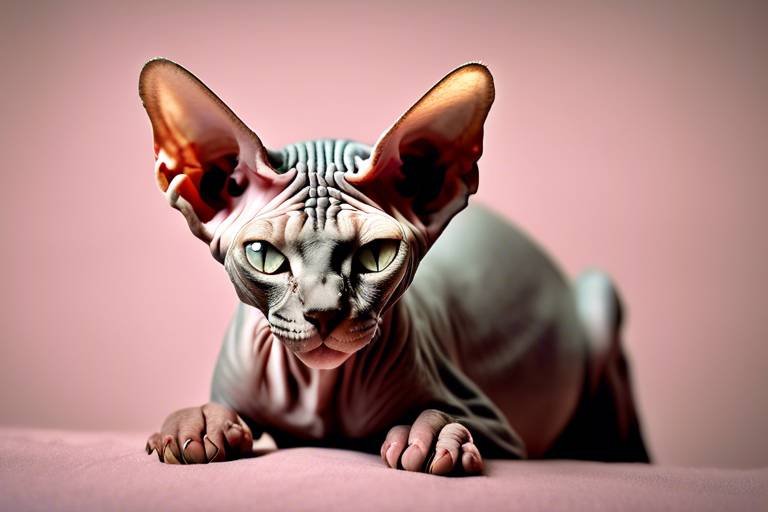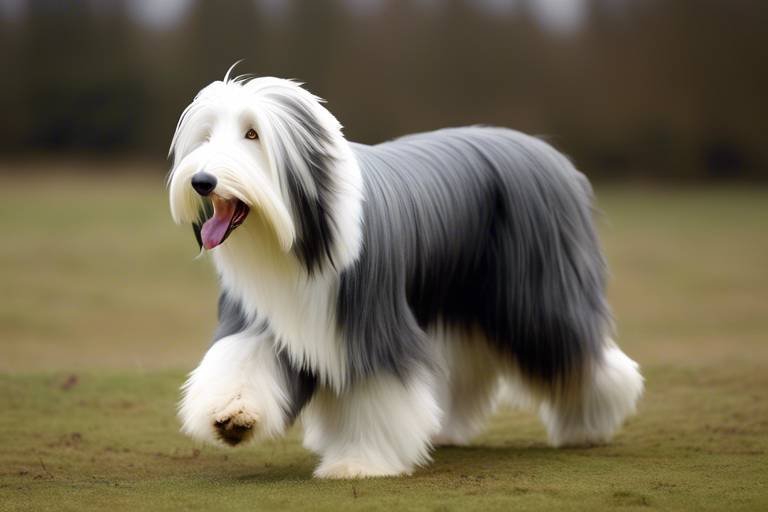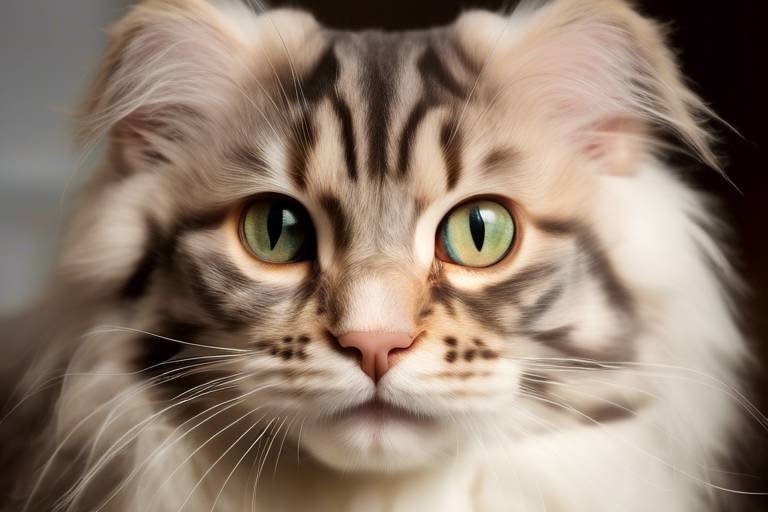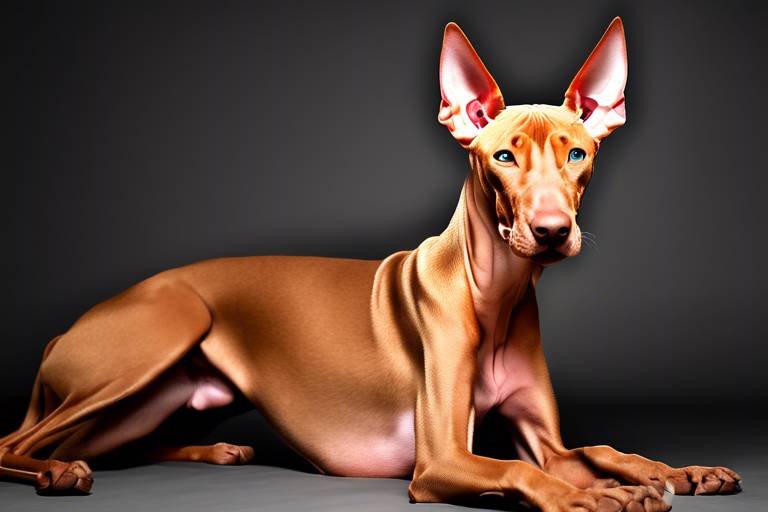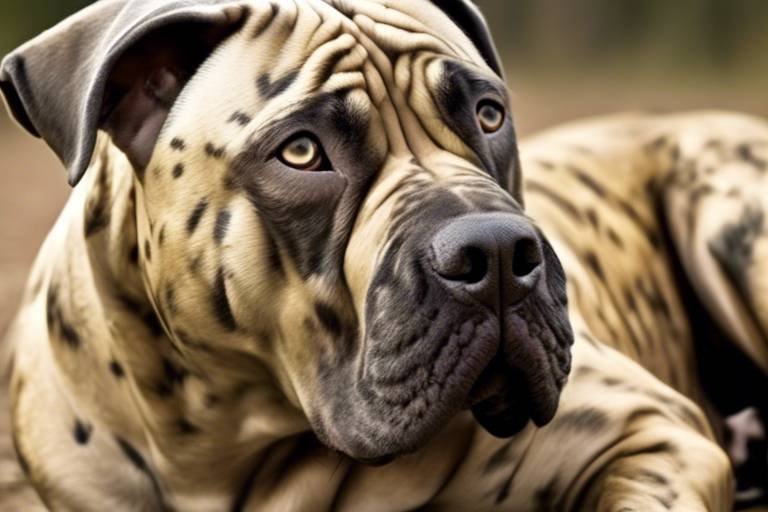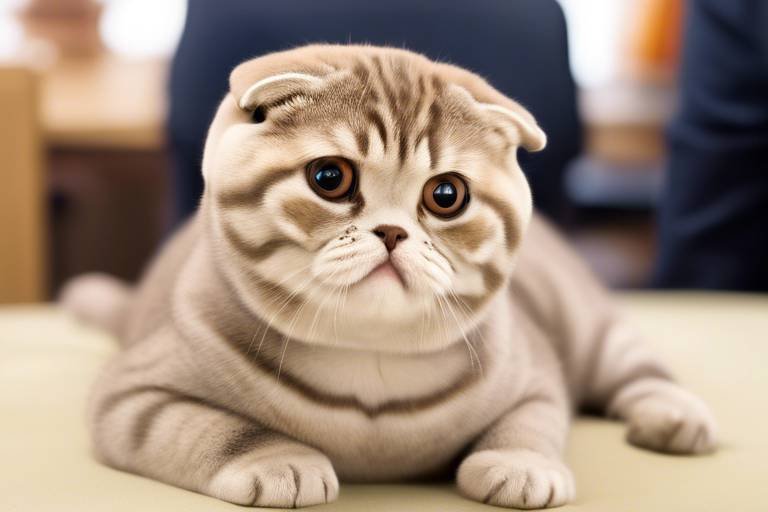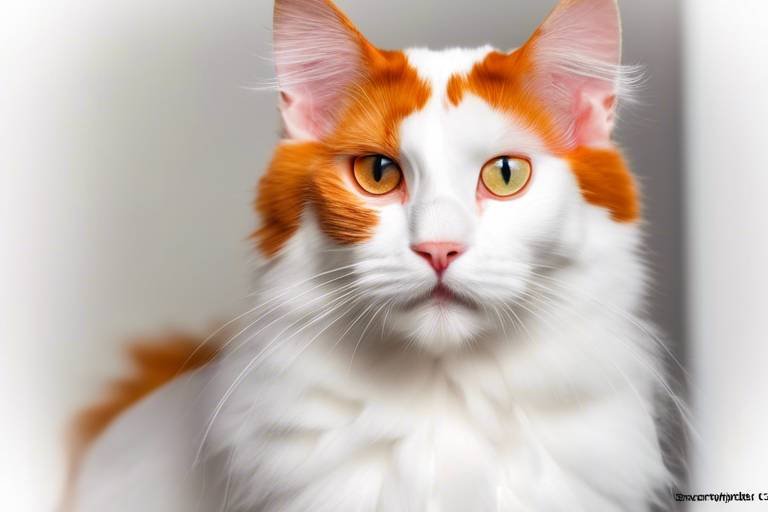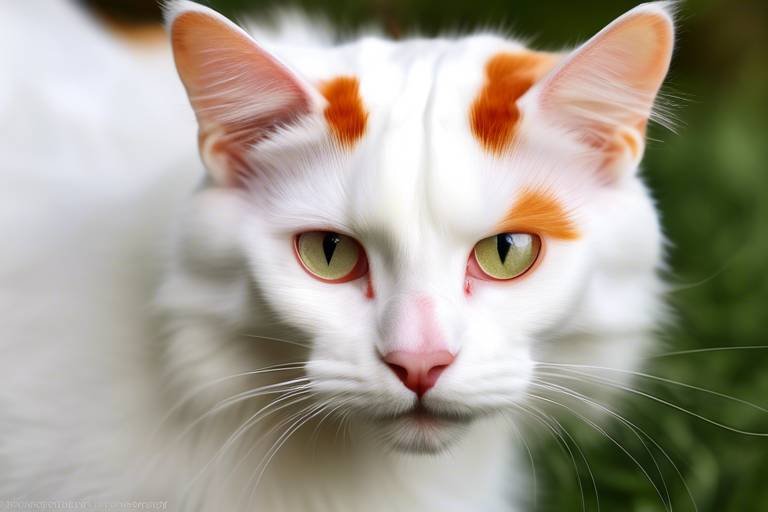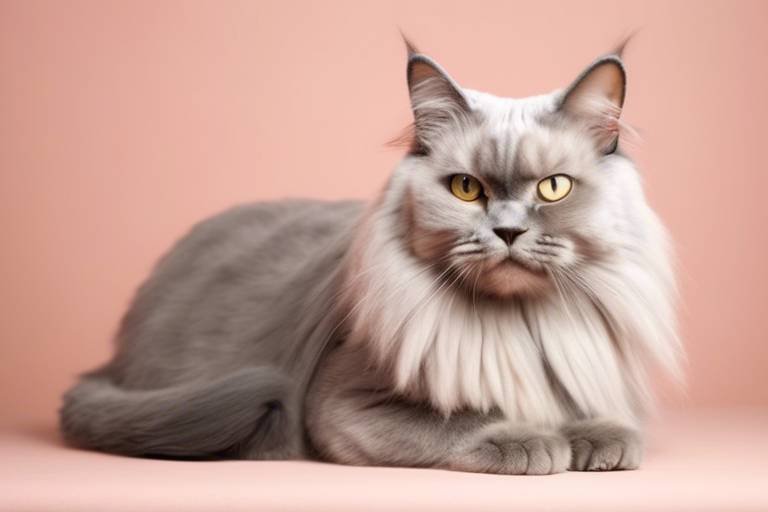The Gentle Nature of the Sphynx Cat
The Sphynx cat, with its strikingly unique appearance and charming personality, has captured the hearts of many pet owners around the world. These hairless felines, often mistaken for being alien-like due to their exposed skin and large ears, are anything but strange. In fact, they are known for their gentle nature and affectionate demeanor, making them some of the most beloved companions one could wish for. Imagine a cat that craves human interaction, follows you around like a shadow, and curls up in your lap, radiating warmth and love. That's the Sphynx for you!
Originating in Canada during the late 1960s, the breed was born out of a natural mutation that resulted in a hairless kitten. This unique trait was embraced by breeders who sought to develop the Sphynx into the charming and sociable breed we know today. It’s fascinating to think that what started as a genetic quirk has blossomed into a breed that embodies affection and playfulness. Sphynx cats thrive on human companionship, often forming strong bonds with their owners. They are not just pets; they are family members who demand attention and love.
One of the most delightful aspects of owning a Sphynx is their playful disposition. These cats are known for their curious nature, often getting into everything and anything. They are like little explorers, constantly seeking new adventures in their home. Whether it’s chasing after a laser pointer or playing hide and seek, Sphynx cats bring a sense of joy and laughter into your life. Their playful antics can easily turn an ordinary day into a delightful experience, reminding us all of the importance of play and curiosity.
Moreover, the Sphynx cat's affectionate nature makes them wonderful companions for individuals and families alike. They are known to be social butterflies, often getting along well with children and other pets. Their gentle demeanor allows them to adapt to various living situations, whether in a bustling household or a quiet apartment. This adaptability is a significant reason why Sphynx owners often rave about their pets, sharing stories of their loving interactions and playful moments.
In summary, the Sphynx cat is not just a pet; it’s a loving companion that enriches the lives of its owners. With their unique appearance, playful spirit, and affectionate nature, they have carved out a special place in the hearts of many. If you’re considering welcoming a Sphynx into your home, be prepared for endless cuddles, playful antics, and a bond that will undoubtedly bring you joy and laughter for years to come.
- Are Sphynx cats hypoallergenic? While no cat is completely hypoallergenic, Sphynx cats produce less Fel d 1 protein, which is a common allergen found in cat saliva and skin.
- Do Sphynx cats require special care? Yes, they need regular bathing to remove oil buildup on their skin and routine inspections to ensure their skin remains healthy.
- Are Sphynx cats good with children? Absolutely! Their playful and affectionate nature makes them great companions for kids.
- How do Sphynx cats behave with other pets? They are generally friendly and adaptable, but proper introductions are essential for a harmonious environment.
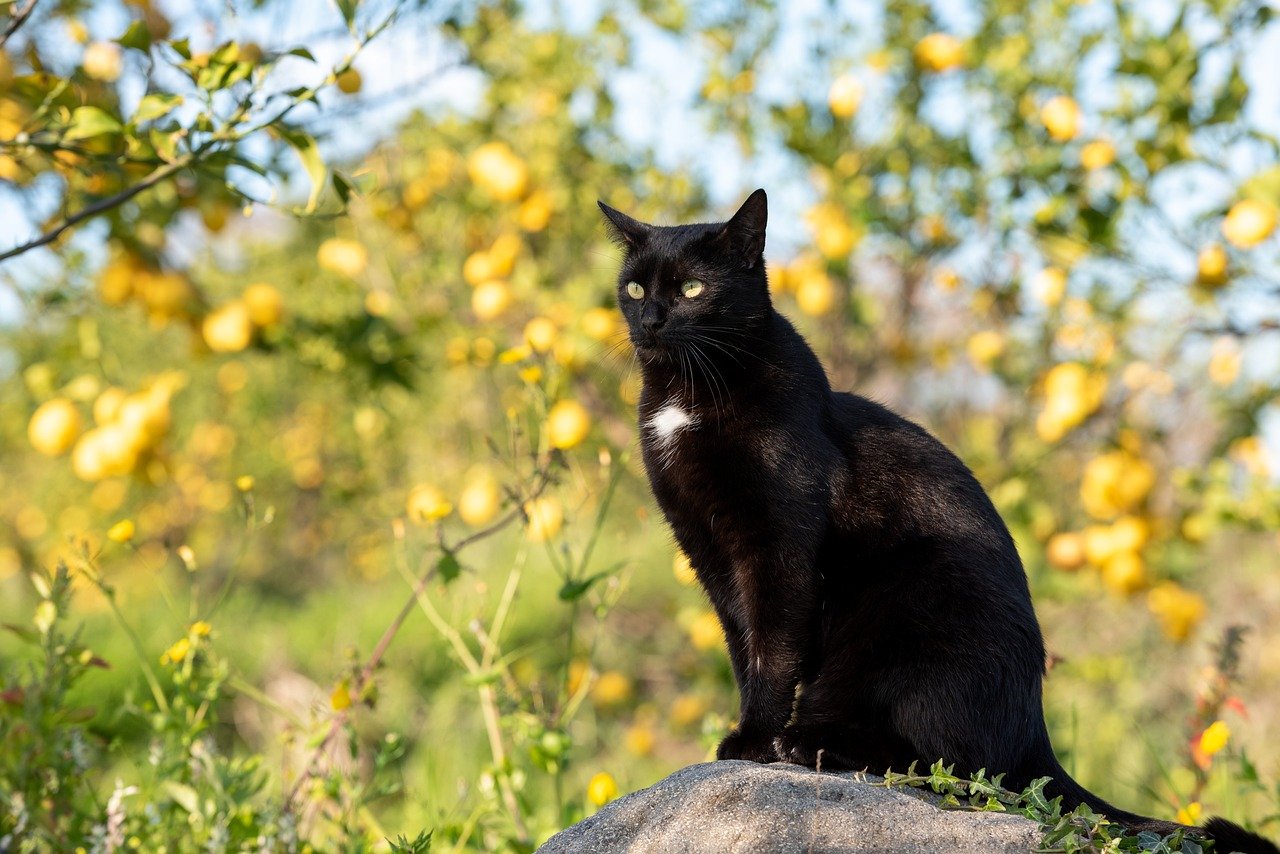
Origin and History
This article explores the unique characteristics, temperament, and care requirements of the Sphynx cat, shedding light on why these hairless felines are beloved companions for many pet owners.
The Sphynx cat has a captivating history that dates back to the late 1960s in Canada. It all began in Toronto when a domestic cat gave birth to a hairless kitten, a genetic mutation that would change the feline world forever. This unique kitten, named Prune, became the foundation for the breed we now adore. Breeders quickly recognized the potential of these hairless wonders and began a dedicated program to develop the Sphynx breed further.
Interestingly, the Sphynx cat is not entirely without precedent. Hairless cats have appeared sporadically throughout history, with records suggesting that similar cats existed in ancient civilizations like Egypt. However, the modern Sphynx cat as we know it today is a product of careful breeding and selection. The breed was officially recognized by the Cat Fanciers' Association in 1985, which solidified its status and popularity among cat lovers.
One of the most fascinating aspects of the Sphynx's origin is its cultural significance. In ancient Egypt, cats were revered, often associated with the goddess Bastet. The hairless appearance of the Sphynx can evoke images of these ancient felines, linking them to a rich history of admiration and reverence. While the Sphynx may not have the long, luxurious fur of traditional cats, its unique look and playful personality have earned it a special place in the hearts of many.
As the breed gained popularity, it also faced challenges. Early breeders encountered various health issues due to the genetic mutations associated with hairlessness. However, with advancements in breeding practices and a better understanding of feline genetics, these concerns have significantly diminished. Today, Sphynx cats are celebrated not only for their distinctive appearance but also for their affectionate and loving nature.
In summary, the history of the Sphynx cat is a remarkable tale of mutation, admiration, and evolution. From its humble beginnings in Canada to its status as a beloved pet worldwide, the Sphynx has captured the hearts of many, proving that beauty truly comes in all forms. Its unique origin story adds to its charm, making it a fascinating breed for anyone considering adding a feline companion to their family.
- What is the lifespan of a Sphynx cat? The average lifespan of a Sphynx cat is around 12 to 15 years, with proper care and nutrition.
- Do Sphynx cats require special grooming? Yes, despite having no fur, Sphynx cats need regular baths and skin inspections to keep their skin healthy.
- Are Sphynx cats good with children? Absolutely! Sphynx cats are known for their friendly and playful nature, making them great companions for children.
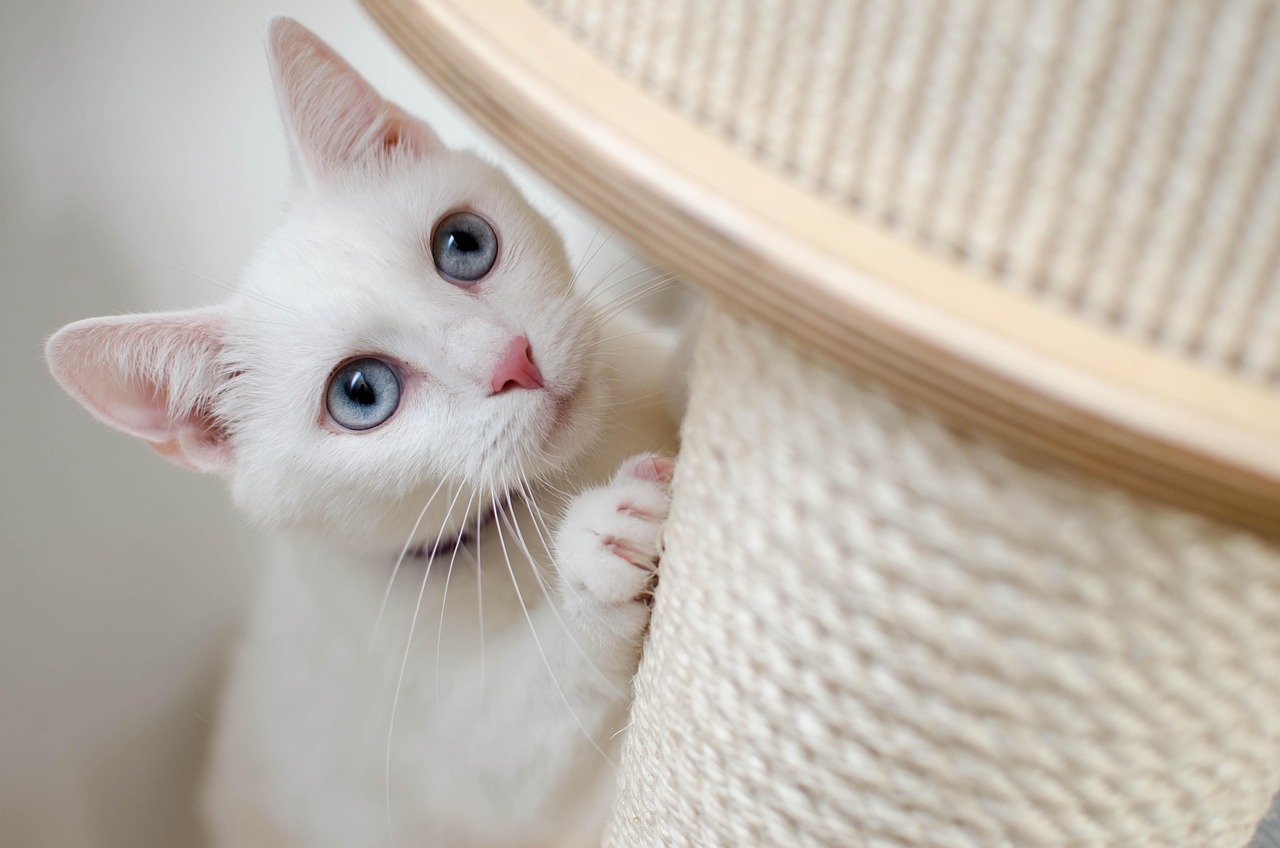
Physical Characteristics
The Sphynx cat is a breed that truly stands out in the feline world, not just for its lack of fur but for its overall distinctive appearance. Imagine a cat with large, bat-like ears that seem to be always on alert, and a body that showcases a unique blend of elegance and muscularity. The absence of fur reveals a skin that is often described as feeling warm and soft to the touch, much like a peach or a chamois leather. This fascinating texture is not just a quirky trait; it’s a testament to their unique physiology and the way they have adapted to their environment.
One of the most captivating features of Sphynx cats is their wrinkled skin. These folds and creases give them an almost alien-like appearance, which some people find absolutely charming. The wrinkles can vary in depth and number, with some cats displaying a multitude of folds, while others may have just a few. It's like each Sphynx has its own personality etched into its skin! And let’s not forget about their eyes; they are typically large and expressive, often appearing to be filled with curiosity and mischief, which only adds to their endearing charm.
In terms of size, Sphynx cats are generally medium-sized, weighing between 6 to 12 pounds. Their bodies are well-proportioned and athletic, with strong legs and a long, slender tail that balances their overall appearance. You might find them lounging around with a regal air, as if they know they are the center of attention. Furthermore, their lack of fur means that they are particularly sensitive to temperature, so they often seek out warm spots in the house, whether it’s a sunny window sill or a cozy blanket.
When it comes to color and patterns, Sphynx cats are surprisingly diverse. They can come in a variety of colors, including but not limited to:
- Black
- White
- Blue
- Chocolate
- Red
- Tabby patterns
Each cat's skin can also display unique markings, making them as visually varied as any other breed. This diversity only adds to their appeal, as potential owners can choose a Sphynx that resonates with their personal style.
Overall, the physical characteristics of the Sphynx cat are not just about aesthetics; they reflect a breed that is uniquely adapted to be a loving companion. Their striking appearance, combined with their affectionate nature, makes them not just pets, but family members who bring joy and warmth into the lives of those who are lucky enough to share their homes with them.
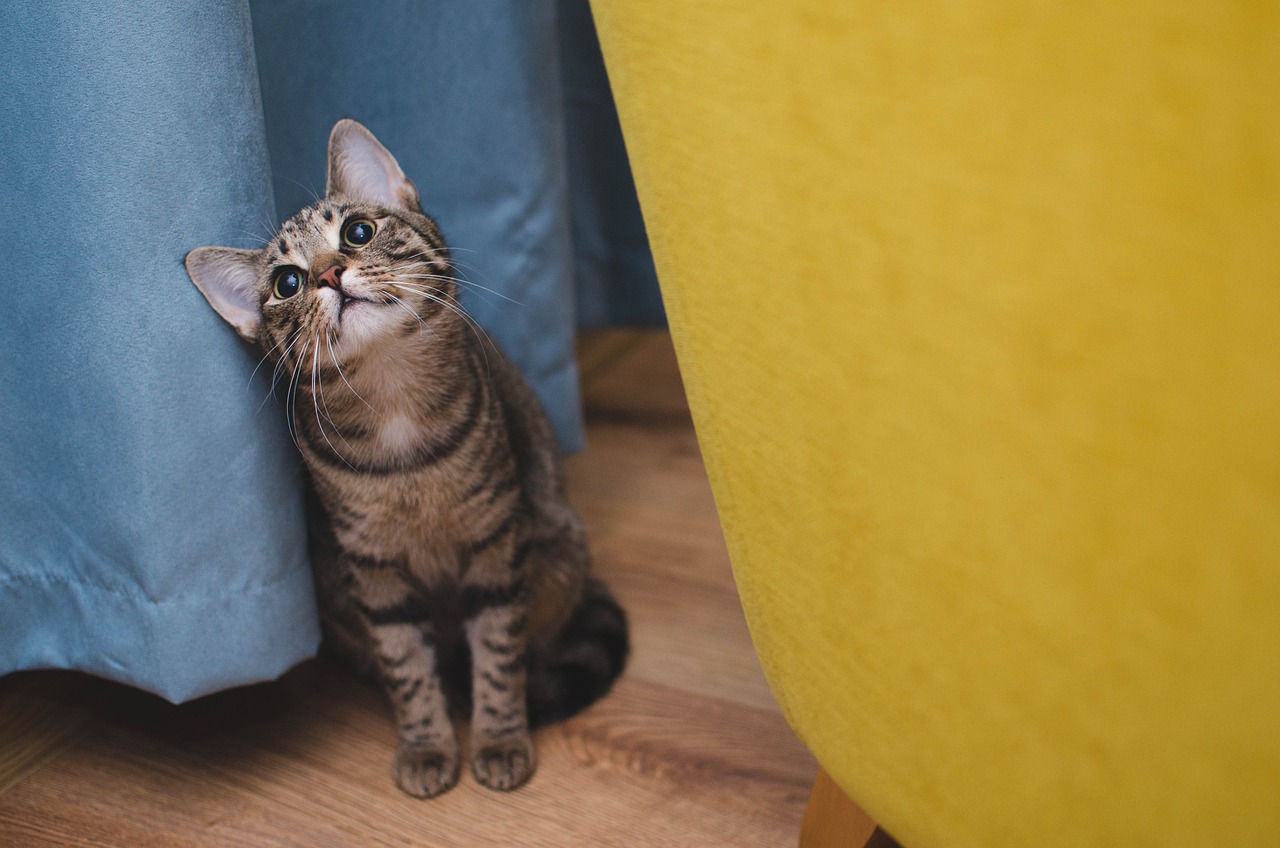
Temperament and Behavior
The Sphynx cat is not just a pretty face; these charming felines are renowned for their affectionate and engaging personalities. Imagine coming home after a long day to find a little creature that greets you with the same enthusiasm as a dog. That’s the Sphynx for you! Their friendly demeanor makes them incredibly social, often seeking out human interaction. They thrive on companionship and are known to follow their owners around the house, eager to be part of every activity.
One of the most delightful aspects of Sphynx cats is their playful nature. They possess a curious spirit that drives them to explore their surroundings. Whether it’s chasing a feather toy or investigating a new box, their antics can provide endless entertainment. It's almost as if they have a built-in sense of adventure! Their playful behavior is not just limited to toys; they enjoy engaging with their humans, often initiating games that can last for hours.
Moreover, Sphynx cats are known for forming strong bonds with their owners. They are highly attuned to human emotions and can sense when you’re feeling down or stressed. When that happens, you might find your Sphynx curling up beside you, offering warmth and comfort. This deep emotional connection makes them not just pets, but true companions. They often exhibit behaviors that show their affection, such as head-butting, purring, and even giving gentle nibbles as a form of love.
However, it’s important to note that their social nature means they do not enjoy being left alone for extended periods. If you’re someone who spends a lot of time away from home, you might want to consider adopting a pair of Sphynx cats. This way, they can keep each other company and engage in their playful antics while you’re away. After all, two Sphynx are better than one when it comes to keeping each other entertained!
Another fascinating behavior characteristic of the Sphynx is their intelligence. These cats are quick learners and can be trained to perform tricks or even walk on a leash. They thrive on mental stimulation, so providing them with puzzle toys or interactive games can help keep their minds sharp. It’s a win-win situation: they get to exercise their brains while you enjoy the show!
In summary, the temperament and behavior of Sphynx cats make them unique and beloved companions. Their affectionate nature, playful spirit, and intelligence create a dynamic personality that captivates many pet owners. So, if you’re looking for a furry friend who’s more like a little shadow, the Sphynx might just be the perfect match for you!
- Are Sphynx cats hypoallergenic? While no cat is completely hypoallergenic, Sphynx cats produce less of the allergenic protein Fel d 1, making them a better choice for allergy sufferers.
- Do Sphynx cats require special care? Yes, they require regular baths and skin inspections to maintain their skin health due to their lack of fur.
- Can Sphynx cats get along with other pets? Generally, yes! Sphynx cats are friendly and adaptable, but proper introductions are key to ensuring harmony.
- What is the average lifespan of a Sphynx cat? With proper care, Sphynx cats can live between 12 to 15 years, sometimes even longer.
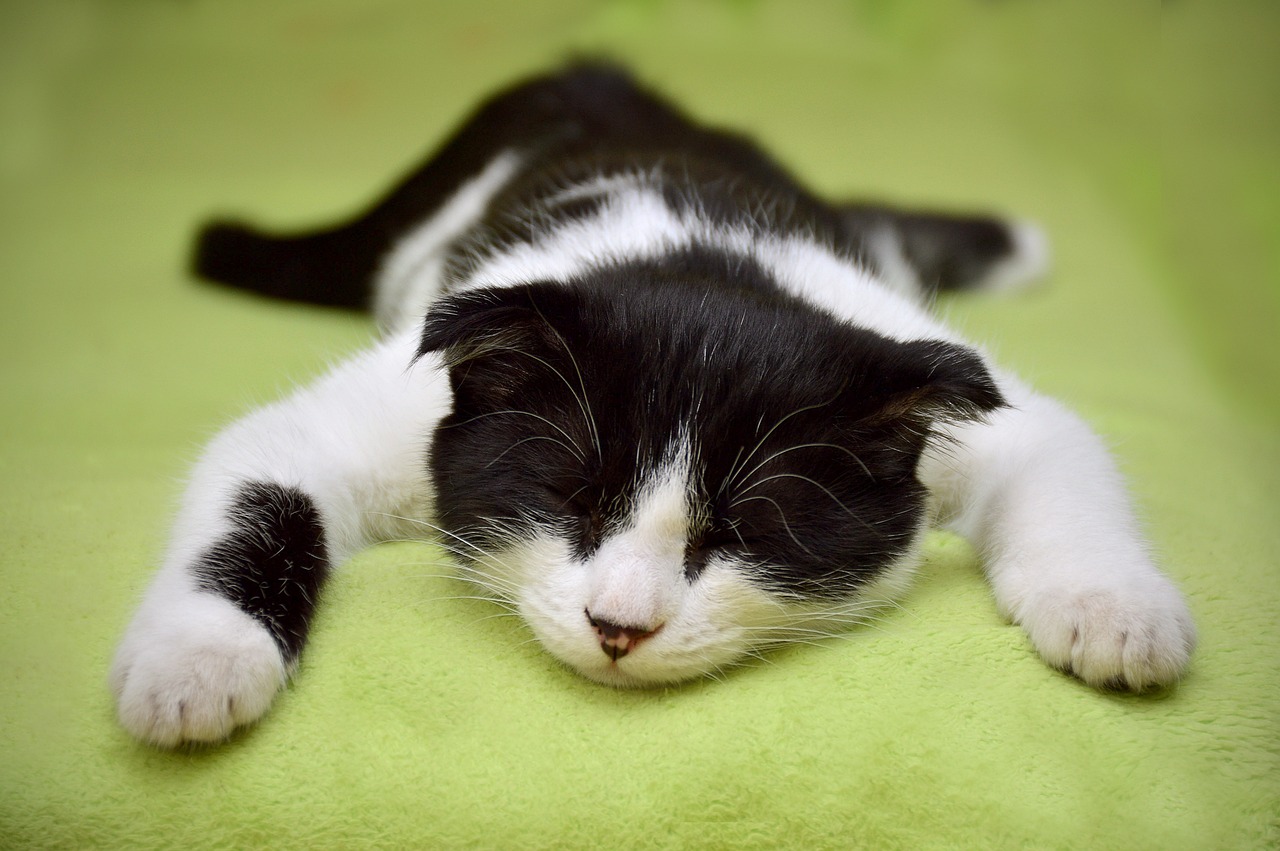
Care and Maintenance
When it comes to caring for a Sphynx cat, you might think that their lack of fur means less maintenance, but that couldn't be further from the truth. In fact, these unique creatures require a specific care routine that ensures their skin remains healthy and their overall well-being is maintained. Just like a delicate flower needs the right amount of sunlight and water, Sphynx cats thrive on proper attention and care.
One of the most crucial aspects of Sphynx care is regular bathing. You might wonder, "Why do they need baths if they don’t have fur?" Well, Sphynx cats produce natural oils that can accumulate on their skin, leading to greasy patches if not cleaned regularly. It's recommended to bathe them at least once every two weeks, using a gentle, hypoallergenic cat shampoo. This not only keeps their skin clean but also helps prevent any skin irritations. Think of it as giving your cat a spa day every now and then!
In addition to bathing, skin inspections are vital. Since Sphynx cats lack fur, their skin is more exposed and can be prone to issues such as sunburn or rashes. Regularly checking your cat's skin for any unusual bumps, redness, or dryness is essential. If you notice anything concerning, don’t hesitate to consult with your veterinarian. Just like you'd check in on a friend who's feeling under the weather, keeping an eye on your Sphynx’s skin is a sign of good pet ownership.
Another important aspect of care is ear cleaning. Their large ears can accumulate wax and debris, so it's advisable to clean them weekly with a vet-recommended solution. This not only prevents infections but also ensures that your Sphynx stays comfortable and happy. Imagine living with a constant itch in your ear; it’s not pleasant, right? Regular ear cleaning helps avoid that discomfort.
Moreover, maintaining a balanced diet is crucial for the Sphynx's health. These cats have a higher metabolism than their furry counterparts, which means they require a diet rich in protein and healthy fats. Consult with your veterinarian to determine the best food options that cater to your Sphynx’s specific needs. Just like you wouldn’t fuel a sports car with regular gas, your Sphynx needs premium nutrition to keep their energy levels up!
Lastly, it's essential to provide your Sphynx with a comfortable living environment. These cats love to snuggle and stay warm, so providing cozy blankets or heated beds can make all the difference. They are social creatures and thrive on interaction, so spending quality time with them is just as important as their physical care. Think of it as a relationship; the more love and attention you give, the stronger the bond becomes.
In summary, while Sphynx cats may not have fur, they certainly require a thoughtful and dedicated approach to care and maintenance. By incorporating regular baths, skin inspections, ear cleaning, a balanced diet, and a warm environment, you can ensure that your Sphynx cat lives a healthy, happy life. After all, a well-cared-for Sphynx is a joyful companion, bringing warmth and love into your home.
- How often should I bathe my Sphynx cat? It's recommended to bathe them at least once every two weeks.
- Do Sphynx cats need special food? Yes, they require a diet rich in protein and healthy fats due to their higher metabolism.
- Can Sphynx cats get sunburned? Yes, their skin is exposed and can be prone to sunburn, so it's important to keep them out of direct sunlight for long periods.
- How do I clean my Sphynx cat's ears? Use a vet-recommended solution and clean them weekly to prevent wax buildup and infections.
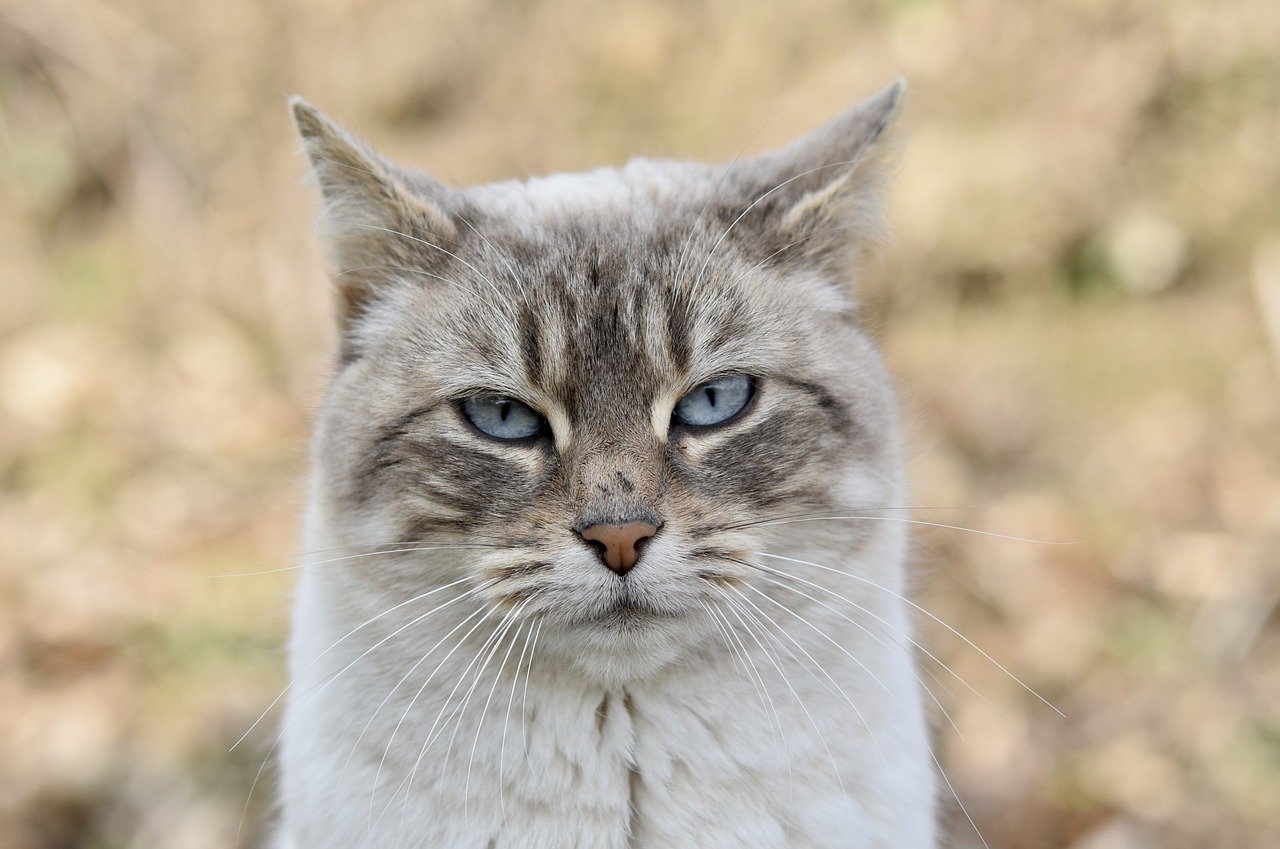
Health Considerations
When it comes to owning a Sphynx cat, understanding their health considerations is absolutely essential. These remarkable creatures, while being incredibly affectionate and playful, do come with their own set of health challenges that potential owners should be aware of. One of the most notable issues is their susceptibility to certain genetic conditions. For instance, Hypertrophic Cardiomyopathy (HCM) is a common heart disease in cats, including Sphynx. This condition can lead to serious complications if not monitored and treated promptly. Regular veterinary check-ups are crucial to catch any early signs of this or other health issues.
Moreover, Sphynx cats, due to their lack of fur, have unique skin care needs. Their skin can become oily, leading to a buildup of dirt and debris. To combat this, it’s recommended to give them regular baths—typically once a week or so. This not only keeps their skin clean but also helps to maintain their overall health. It's like having a child; they need regular attention to stay clean and happy! Additionally, you should inspect their skin regularly for any signs of irritation or infection, as their exposed skin is more prone to issues like sunburn or rashes.
Another important aspect of Sphynx health is their temperature regulation. Without fur, they can easily become too cold or too hot. This means that during colder months, providing a warm environment with cozy blankets is vital, while in the summer, ensuring they have a cool place to relax is equally important. Think of them as little heat-seeking missiles; they thrive in warmth but can struggle if the temperature drops.
To summarize, here are key health considerations for Sphynx cats:
- Regular Vet Check-ups: Essential for early detection of genetic conditions like HCM.
- Skin Care: Regular baths and skin inspections to prevent oil buildup and infections.
- Temperature Management: Provide warmth in winter and cool spots in summer.
By being proactive about these health considerations, you can ensure that your Sphynx cat lives a long, happy, and healthy life. Remember, just like any pet, they thrive on love, attention, and proper care. So, if you’re considering bringing one of these unique felines into your home, be prepared to give them the special care they deserve!
Q: What are the common health issues in Sphynx cats?
A: The most common health issues include Hypertrophic Cardiomyopathy (HCM), skin problems due to oil buildup, and temperature regulation issues.
Q: How often should I bathe my Sphynx cat?
A: It’s generally recommended to bathe them once a week to maintain their skin health.
Q: Do Sphynx cats require special diets?
A: While they don’t require a specific diet, a balanced diet that supports their active lifestyle is crucial. Consult your vet for personalized recommendations.
Q: Can Sphynx cats live with other pets?
A: Yes, they are usually friendly and adaptable, but proper introductions are necessary to ensure a harmonious environment.
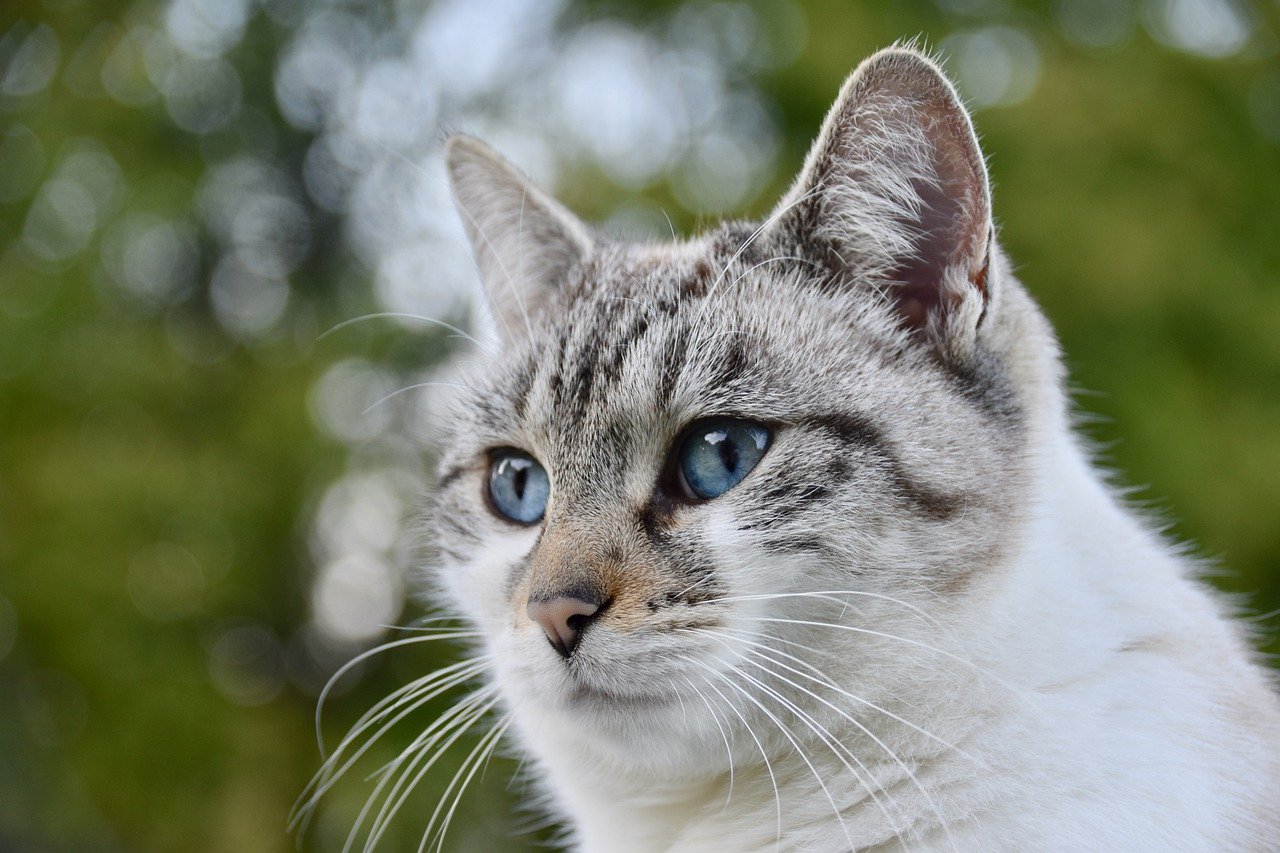
Socialization with Other Pets
When it comes to bringing a Sphynx cat into your home, one of the most delightful aspects is their friendly and adaptable nature. These hairless wonders are not just unique in appearance; they also possess a temperament that often allows them to get along well with other pets. However, like any relationship, proper introductions and socialization practices are crucial to ensure harmony in your household. Think of it as throwing a party where everyone needs to feel comfortable and included. You wouldn’t just invite someone to a party without introducing them to the other guests, right?
To start off, it’s essential to introduce your Sphynx cat to other pets gradually. Begin by allowing them to sniff each other’s belongings, which can help them get used to each other’s scents. This step is akin to sending out invitations before the big day. Once they seem comfortable with each other's scents, you can proceed to supervised meetings. During these initial interactions, keep a close eye on their behavior. If either pet shows signs of aggression or fear, it’s important to separate them and try again later. Remember, patience is key!
Another thing to consider is the personality of your existing pets. Some pets, like dogs, may have a natural instinct to chase smaller creatures, while others may be more laid-back. If you already have a dog, it might be worth consulting with a trainer on how to introduce them safely. The best approach is to create a positive environment where both the Sphynx and other pets can feel secure. Use treats and praise to reward calm behavior during interactions, reinforcing the idea that being together is a good thing.
Moreover, Sphynx cats thrive on social interaction and often enjoy the company of other animals. They can be quite playful and curious, which can lead to delightful bonding experiences with their furry companions. It’s not uncommon to see a Sphynx and a dog or another cat engaging in playful antics around the house. In fact, many owners delight in watching their Sphynx play with toys or even engage in playful wrestling matches with their pet friends.
In conclusion, socializing a Sphynx cat with other pets can lead to a joyful and enriched household. Just remember that every pet is unique, and the key to a successful introduction lies in patience, supervision, and positive reinforcement. By taking the time to ensure a smooth transition, you’ll be rewarded with a loving and harmonious home where your Sphynx and other pets can coexist beautifully.
- Can Sphynx cats live with dogs? Yes, Sphynx cats can live with dogs, especially if they are introduced properly and both pets are socialized.
- How long does it take for a Sphynx to adjust to other pets? The adjustment period can vary, but with patience, most Sphynx cats can adapt within a few weeks.
- What should I do if my Sphynx cat is aggressive towards other pets? If aggression occurs, separate the pets immediately and consult a veterinarian or animal behaviorist for advice.
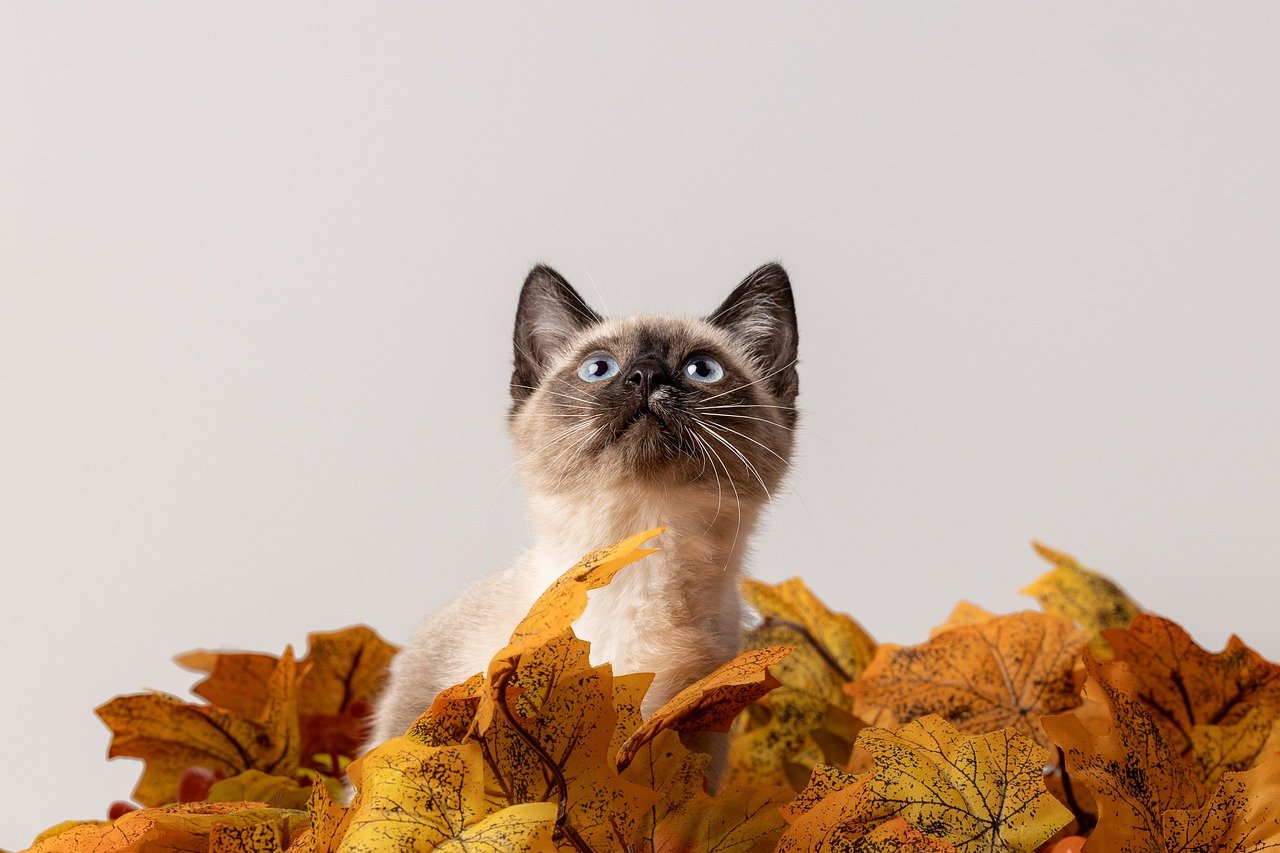
Feeding and Nutrition
When it comes to the of Sphynx cats, it’s essential to recognize that their unique physiology requires a tailored approach. These charming, hairless felines have a higher metabolic rate compared to other breeds, which means they need a diet rich in quality ingredients to maintain their energy levels and overall health. Think of their diet as fuel for a high-performance engine; the better the fuel, the better the performance!
Generally, a Sphynx cat's diet should consist of high-quality protein sources, as they are naturally energetic and playful. Look for cat food that lists a specific meat, such as chicken or turkey, as the first ingredient. This ensures they are getting the necessary amino acids for muscle development and overall health. Additionally, incorporating healthy fats into their diet is crucial. Omega-3 and Omega-6 fatty acids not only support skin health but also contribute to a shiny coat—yes, even if they don’t have fur!
Hydration is another key aspect of their nutrition. Cats, in general, can be prone to urinary issues, and Sphynx cats are no exception. Offering a combination of dry and wet food can encourage better hydration. Wet food can be particularly beneficial as it contains a higher moisture content, which helps keep their urinary tract healthy. It’s like giving them a refreshing drink while they enjoy their meal!
To make sure you’re providing the best nutrition for your Sphynx, consider the following important factors:
- Age and Activity Level: Kittens, adults, and senior cats all have different nutritional needs. Kittens, for instance, require more calories and nutrients to support their rapid growth.
- Specific Health Needs: If your Sphynx has any health issues, consult with a veterinarian for tailored dietary recommendations.
- Portion Control: Monitor their weight and adjust portions as necessary to prevent obesity, which can lead to various health problems.
Additionally, it's important to avoid feeding your Sphynx cat human food, especially those that are toxic to cats, such as chocolate, onions, and garlic. Instead, focus on providing them with a balanced diet specifically formulated for feline needs. If you’re unsure about what to feed your Sphynx, don't hesitate to consult your veterinarian. They can provide valuable insights tailored to your cat's individual needs.
Lastly, always ensure that fresh water is available at all times. Cats can be finicky drinkers, so consider using a cat water fountain to encourage them to drink more. After all, hydration is just as important as nutrition in keeping your Sphynx healthy and happy!
1. How often should I feed my Sphynx cat?
Most adult Sphynx cats do well with two meals a day, while kittens may require three to four smaller meals. Always adjust based on their activity level and weight.
2. Can Sphynx cats eat grain-free food?
Yes, many Sphynx owners opt for grain-free diets, as some cats may have sensitivities to grains. However, ensure the food still contains adequate protein and healthy fats.
3. Are there any special supplements I should give my Sphynx?
While a balanced diet should provide most necessary nutrients, some owners choose to add omega fatty acids for skin health. Always consult your vet before adding supplements.
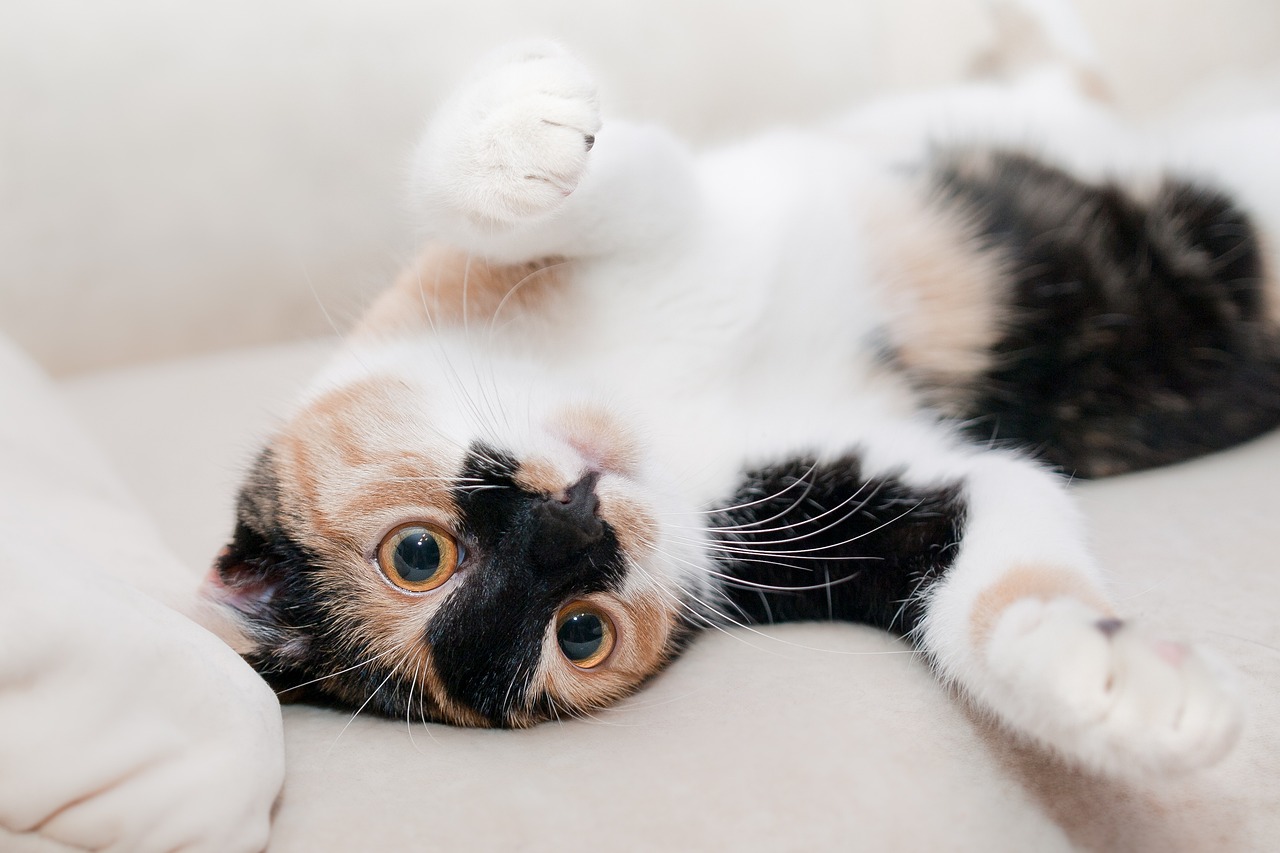
Adoption and Breeder Considerations
When it comes to welcoming a Sphynx cat into your home, there are several key factors to consider to ensure you make the best choice for both you and your future feline friend. First and foremost, you need to decide whether to adopt from a shelter or purchase from a reputable breeder. Each option has its own set of advantages and challenges. Adopting from a shelter can be a fulfilling experience, as you’re giving a loving home to a cat in need. However, finding a Sphynx at a shelter may be more challenging due to their popularity and unique breeding history.
On the other hand, if you choose to go through a breeder, it’s essential to do your research. Not all breeders are created equal, and you want to ensure that you’re working with someone who prioritizes the health and well-being of their cats. A good breeder will provide a clean, safe environment for their cats and be transparent about their breeding practices. They should also be willing to show you the kitten’s parents and provide health clearances. This can give you peace of mind knowing that your new pet comes from a healthy lineage.
Here are some important questions to ask when considering a breeder:
- How long have you been breeding Sphynx cats?
- Can I see the kittens' parents?
- What health screenings have been done on the parents?
- What kind of socialization have the kittens received?
- What is your policy on health guarantees and returns?
Moreover, it’s crucial to understand the financial commitment involved in adopting or purchasing a Sphynx cat. The initial cost can vary widely, typically ranging from $1,500 to $3,000 or more, depending on the breeder’s reputation and the cat’s lineage. Beyond the purchase price, you should also consider ongoing expenses such as food, grooming, veterinary care, and potential health issues unique to the breed.
In addition to the financial aspect, think about your lifestyle. Sphynx cats are known for their affectionate and social nature, which means they thrive on interaction and companionship. If you lead a busy life or travel frequently, it’s essential to consider how this may affect your ability to provide the attention and care that a Sphynx cat requires. They are not the type of pet that enjoys being left alone for long periods, so ensure you’re ready for the commitment.
Ultimately, whether you choose to adopt from a shelter or purchase from a breeder, the goal is to find a healthy, happy Sphynx cat that fits well into your lifestyle. Take the time to research, ask questions, and assess your own readiness for pet ownership. After all, bringing a new pet into your home is not just about finding a cute face; it’s about welcoming a new family member who will bring joy, laughter, and perhaps a little bit of mischief into your life!
As you ponder the idea of adopting or purchasing a Sphynx cat, you might have some questions running through your mind. Here are a few common queries that potential Sphynx owners often ask:
- Do Sphynx cats require special care? Yes, they need regular baths and skin inspections to keep their skin healthy.
- Are Sphynx cats hypoallergenic? While they produce fewer allergens than some other breeds, they are not completely hypoallergenic.
- How do Sphynx cats get along with other pets? They are generally friendly and can adapt well, but proper introductions are essential.
- What is the average lifespan of a Sphynx cat? With proper care, they can live between 12 to 15 years or more.
Frequently Asked Questions
- What is the origin of the Sphynx cat?
The Sphynx cat originated in Canada in the late 1960s when a hairless kitten was born to a domestic cat. Breeders began to develop this unique breed, focusing on its distinctive appearance and friendly temperament.
- Are Sphynx cats hypoallergenic?
While no cat is completely hypoallergenic, Sphynx cats may produce fewer allergens compared to other breeds. Their lack of fur means less dander, but they still require regular cleaning to manage oils and skin secretions.
- How do I care for a Sphynx cat's skin?
Regular baths are essential for Sphynx cats to remove excess oil from their skin. It's also important to inspect their skin for any signs of irritation or infection, ensuring they stay healthy and comfortable.
- Do Sphynx cats get along with other pets?
Yes, Sphynx cats are generally friendly and social. They can adapt well to living with other pets, but proper introductions and socialization are crucial to ensure a harmonious environment.
- What should I feed my Sphynx cat?
A balanced diet rich in high-quality protein is vital for Sphynx cats, as they have a higher metabolism. Consult your veterinarian to determine the best nutritional plan for your furry friend.
- What common health issues should I be aware of?
Sphynx cats can be prone to certain health issues such as heart disease and skin conditions. Regular veterinary check-ups and a healthy diet can help mitigate these risks and ensure your cat lives a long, happy life.
- How do I find a reputable Sphynx cat breeder?
Research is key! Look for breeders who prioritize health testing and have a good reputation in the cat community. Visiting the breeder and meeting the kittens and their parents can also provide insight into their breeding practices.
- Can Sphynx cats tolerate cold weather?
Due to their lack of fur, Sphynx cats can be sensitive to cold temperatures. It's best to keep them indoors and provide warm blankets or clothing during chilly weather to keep them comfortable.

